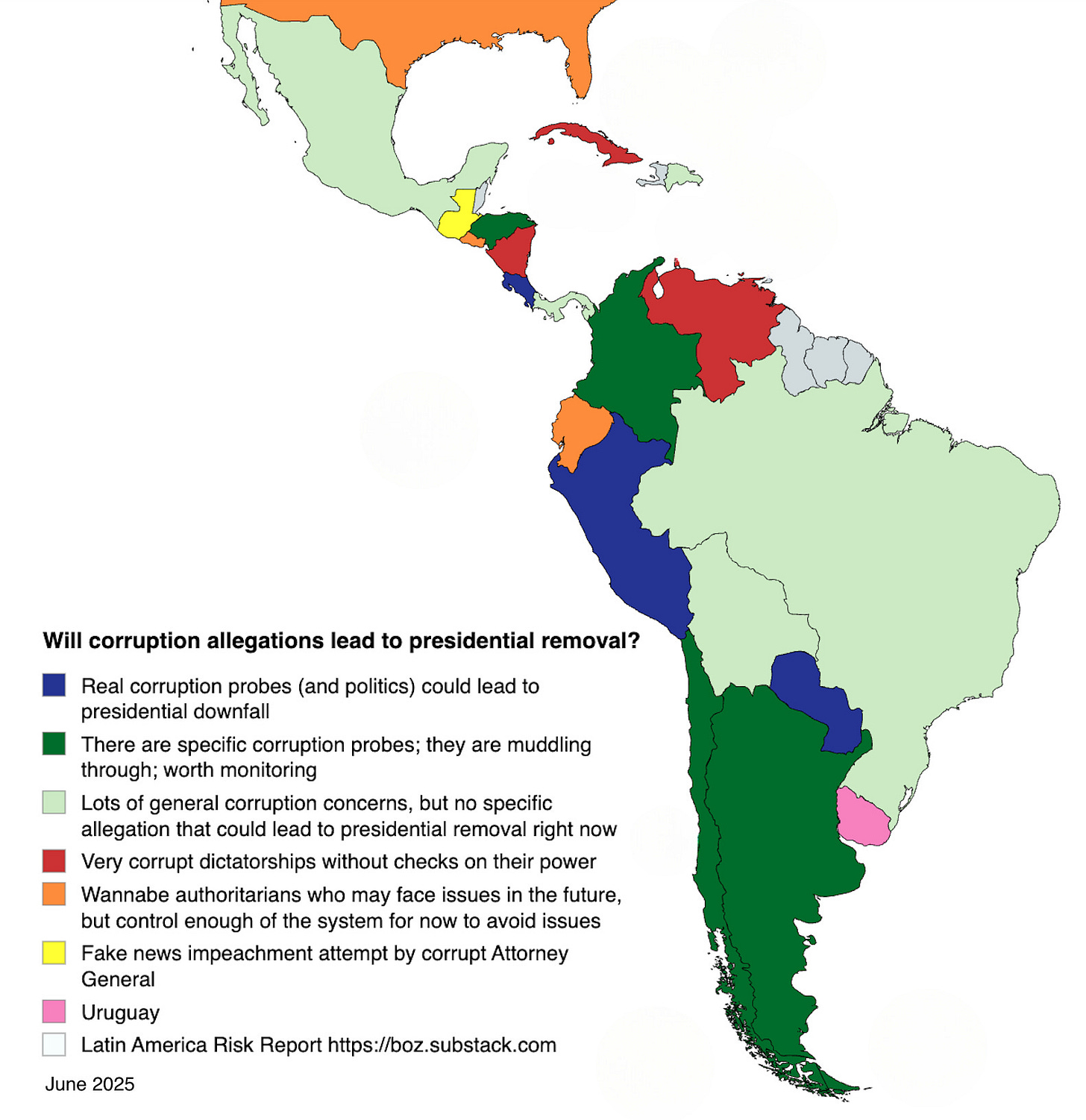Fritz Alphonse Jean, the head of Haiti’s transitional presidential council, acknowledged for the first time the government’s use of foreign contractors to help in the fight against armed gangs, in an interview with local journalists. However, he declined to provide details on the private security firm including how much Haiti’s transitional government is paying for the service and the group’s obligations under the contract, reports the Miami Herald.
“The presence of foreign mercenaries in Haiti’s anti-gang fight and the lack of transparency around the players, most notably the former head of Blackwater, Erik Prince, and the rules of engagement, have been raising concerns both inside the country and in international circles since the group was first tied to the dropping of weaponized, explosive drones into gangs’ strongholds by an equally opaque government task force,” writes Jacqueline Charles.
More Haiti
Haiti’s transitional presidential council “is moving forward with a controversial plan to rewrite the Haitian constitution. The proposed changes will fundamentally alter Haiti’s government structure, including abolishing the senate and the prime minister, allowing presidents to hold consecutive terms, changing election procedures and allowing dual citizens and Haitians living abroad to run for office,” writes Greg Beckett in The Conversation.
La Chapelle, a commune in Haiti’s lower Artibonite Department, fell to gang control early Sunday morning, after armed men from the “Talibans” group based in Canaan—a neighborhood in Port-au-Prince—launched a pre-dawn assault, reports the Haitian Times.
El Salvador
The U.S. Trump administration plans to secretly drop charges against leaders of the Mara Salvatrucha-13 (MS-13) accused of acts of terrorism, whom the U.S. president ordered to be prosecuted during his first term, and whose capture was the priority objective of the Joint Task Force Vulcan, reports El Faro. The move follows the release of high-level MS-13 leaders from U.S. custody to El Salvador, concurrently with the Bukele administration receiving and detaining third-country deportees from the U.S.
Sixty percent of Salvadorans fear criticizing President Nayib Bukele and landing in jail, reports AFP. (Via Pirate Wire Services)
Regional Relations
Countries in Latin America and the Caribbean must choose "which side they are going to be on" in the conflict with Iran, a U.S. State Department official said yesterday. Antigua and Barbuda is hosting the 55th OAS General Assembly today. (AFP)
Chinese companies have built or operate 31 active ports in Latin America and the Caribbean, many more than previously thought, according to research by Center for Strategic and International Studies, shared with the Financial Times.
Colombia’s recent pivot towards China is a reactive shift to U.S. tariffs. “The timing of this decision could hardly be worse, and exemplifies Colombia’s lack of long-term strategic planning in foreign affairs,” argues to Luis Fernando Mejía in Americas Quarterly.
Chinese e-commerce companies TikTok Shop, Shein and Temu are battling for Latin American markets, focused on Mexico and Brazil, reports Rest of World.
Brazil
Historic forest fires in Brazil last year scorched through an area larger than the size of Italy, recording a burned area some 60 percent higher than average of the last four decades, according to a new report. (AFP)
Venezuela
A Colombian serving a drug trafficking sentence in the U.S., Alvaro Fredy Córdoba Ruiz, “has offered a startling account of a continent-spanning cocaine operation allegedly run by senior Venezuelan military officials,” reports the Miami Herald.
Mexico
“The US government announced new sanctions against several leaders of the Jalisco Cartel this week, in a unique case that for the first time singled out a member of an organized crime group for their alleged role in a gender-based killing,” reports InSight Crime.
Argentina
“The problem with Peronism’s death is that a lot of people go to the funereal,” writes Horacio Verbitsky, citing an assistant at the massive march in support of Cristina Fernández de Kirchner, who was put under house arrest last week. The judicial maneuverings in the corruption case for which she was sentenced are redolent of the proscription of Peronism in the 1950s, which caused violent polarization culminating in the human rights atrocities of the 1976 dictatorship, he writes. But “Cristina's insistence on the need to resort only to peaceful means, in spite of the violence and illegality that sustain the government, helps to prevent the generations that followed the one of '55 from repeating our mistakes.” (Cohete a la Luna)
Balconies are a recurring theme in Peronism, and the latest balcony to enamor the masses is the one of Cristina’s apartment, where she danced with supporting masses, much to the outrage of opponents - Danila Saiegh explores the topic in Página 12.
Panama
Panama suspended constitutional protections, including the rights to assemble and of free movement, for five days in its northwestern Bocas del Toro province Friday after two months of protests and road blockades turned more destructive, reports the Associated Press.
Paraguay
Paraguay’s ruling Colorado party wants to posthumously honor Eliza Lynch, the Irish-born partner of strongman Francisco Solano López – who in the 19th century led Paraguay into a cataclysmic four-year war against Brazil, Argentina and Uruguay. It’s controversial on a number of levels, reports the Guardian.
Regional
“In the modern era, Latin American presidents are more likely to be forced out due to institutional battles and impeachment-like processes than they are in coups. That means tracking these processes is important for monitoring institutional stability,” writes James Bosworth in the Latin America Risk Report — and he made an illustrative map showing presidential corruption allegations and impeachment processes in the region.





